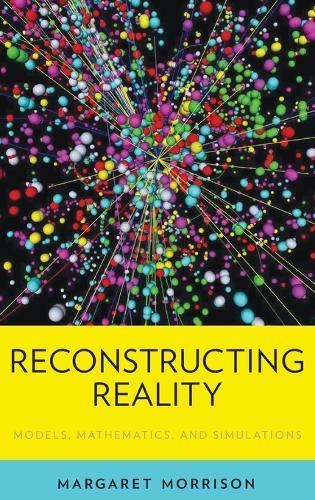Overview
"Attempts to understand various aspects of the empirical world often rely on modelling processes that involve a reconstruction of systems under investigation. Typically the reconstruction uses mathematical frameworks like gauge theory and renormalization group methods, but more recently simulations also have become an indispensable tool for investigation. This book is a philosophical examination of techniques and assumptions related to modelling and simulation with the goal of showing how these abstract descriptions can contribute to our understanding of the physical world. Particular issues include the role of fictional models in science, how mathematical formalisms can yield physical information, and how we should approach the use of inconsistent models for specific types of systems. It also addresses the role of simulation, specifically the conditions under which simulation can be seen as a technique for measurement, replacing more traditional experimental approaches. Inherent worries about the legitimacy of simulation ""knowledge"" are also addressed, including an analysis of verification and validation and the role of simulation data in the search for the Higgs boson. In light of the significant role played by simulation in the Large Hadron Collider experiments, it is argued that the traditional distinction between simulation and experiment is no longer applicable in some contexts of modern science. Consequently, a re-evaluation of the way and extent to which simulation delivers empirical knowledge is required.""This is a, lively, stimulating, and important book by one of the main scholars contributing to current topics and debates in our field. It will be a major resource for philosophers of science, their students, scientists interested in examining scientific practice, and the general scientifically literate public.""-Bas van Fraassen, Distinguished Professor of Philosophy, San Francisco State University"
Full Product Details
Author: Margaret Morrison (Professor of Philosophy, Professor of Philosophy, University of Toronto, Toronto)
Publisher: Oxford University Press Inc
Imprint: Oxford University Press Inc
Dimensions:
Width: 21.30cm
, Height: 3.60cm
, Length: 15.00cm
Weight: 0.451kg
ISBN: 9780199380275
ISBN 10: 0199380279
Pages: 344
Publication Date: 29 January 2015
Audience:
College/higher education
,
Postgraduate, Research & Scholarly
Format: Hardback
Publisher's Status: Active
Availability: Manufactured on demand

We will order this item for you from a manufactured on demand supplier.
Reviews
Morrison's look at concrete and intricate cases of modeling raises a number of interesting issues, and at places, her piecemeal approach is as refreshing as her claims are thought-provoking. The book thus is a valuable reading for philosophers who work on modeling in physics. Notre Dame Philosophical Reviews Online Her limpid exposition and copious use of example in the interpretation of the function of models in different investigative contexts is an essential contribution to the current debate about the role of reconstructive methods in the practice of science ... Highly recommended. L. C. Archie, CHOICE
...Morrison's look at concrete and intricate cases of modeling raises a number of interesting issues, and at places, her piecemeal approach is as refreshing as her claims are thought-provoking. The book thus is a valuable reading for philosophers who work on modeling in physics. Notre Dame Philosophical Reviews Online
Author Information
Margaret Morrison is Professor of Philosophy at the University of Toronto. Her publications span many fields including general philosophy of science, history and philosophy of physics, and the history of early modern philosophy (especially Kant). She has also published articles on methodological issues related to the development of population genetics.




